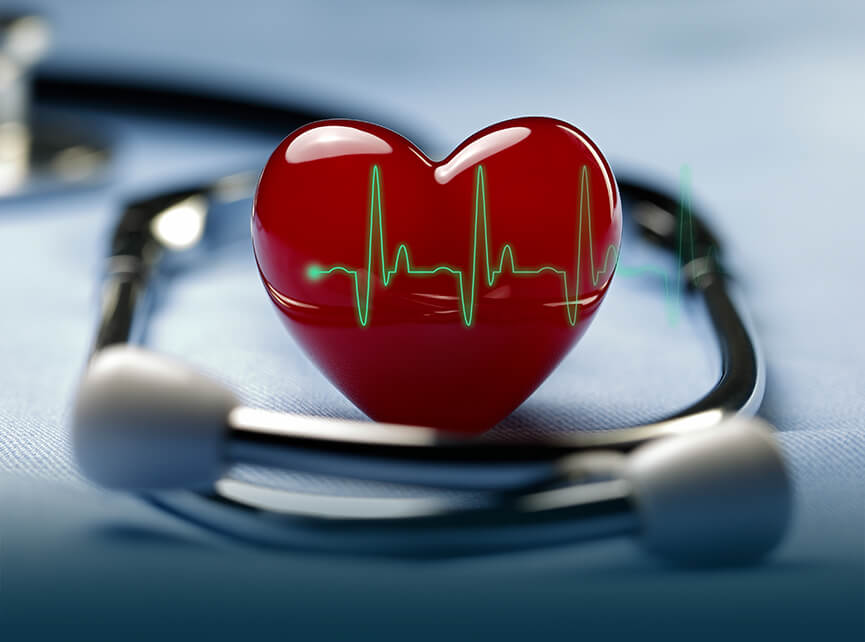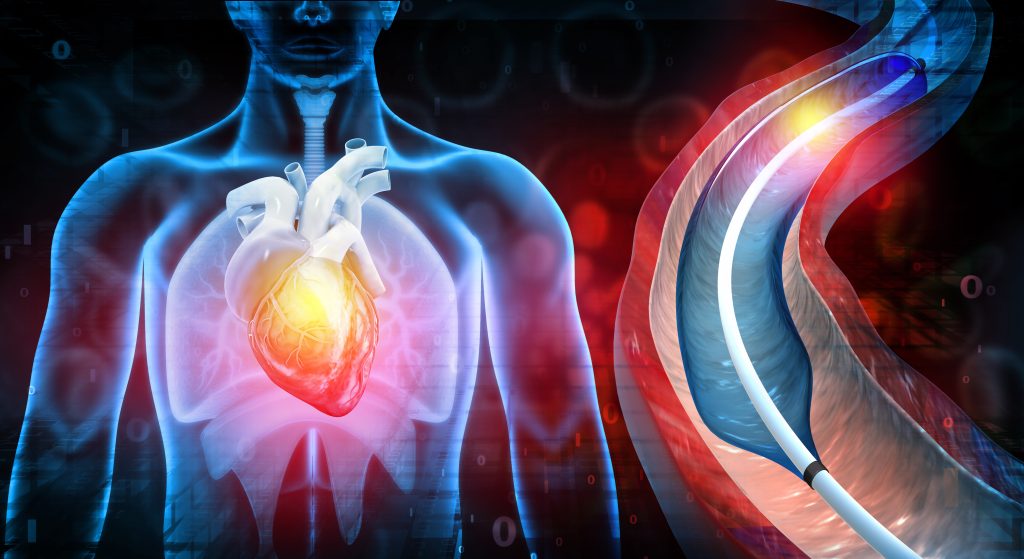Comprehending the Relevance of Cardiology in Modern Healthcare Solutions
Cardiology plays a critical function in modern-day healthcare, especially as heart problem proceeds to be the leading root cause of death worldwide. Advances in diagnostics and treatment have transformed person treatment, enabling earlier interventions and boosted outcomes. Furthermore, the shift in the direction of preventive cardiology equips people to handle their health and wellness proactively. As technology continues to develop, the combination of ingenious options may even more redefine cardiology's impact on public health, prompting a more detailed exam of arising fads and their ramifications.
The Occurrence of Heart Disease and Its Impact on Public Health
Although cardiovascular disease remains the leading cause of fatality globally, its impact expands much past private clients to impact public health and wellness systems and economic situations. The high frequency of heart condition positions a significant stress on healthcare resources, necessitating boosted financing for rehabilitation, therapy, and prevention programs. Public health efforts must attend to risk aspects such as obesity, smoking cigarettes, and inactive way of livings, which contribute greatly to the increasing occurrence of heart conditions.Moreover, the financial problem related to cardiovascular disease is tremendous, including not just direct clinical costs yet also indirect expenditures associated to lost efficiency and early death. Communities deal with obstacles in taking care of these costs, usually resulting in differences in medical care access and results. As the populace ages and lifestyle-related threats remain to intensify, the necessity for reliable cardiology interventions becomes extremely important. Resolving heart illness is not just an issue of individual health and wellness yet also an important public health concern.
Developments in Heart Diagnostics and Imaging Techniques
Current advancements in cardiac diagnostics and imaging methods have actually changed the field of cardiology, enhancing the ability to monitor and find cardiovascular disease. Techniques such as cardiac MRI, CT angiography, and echocardiography have become increasingly advanced, offering comprehensive pictures of cardiac structures and functions. These methods enable the very early identification of problems like coronary artery condition, heart failure, and valvular disorders.Moreover, developments in non-invasive diagnostics, such as wearable technology and remote surveillance gadgets, have encouraged individuals and doctor. These tools promote real-time monitoring of heart rhythms and other essential indicators, resulting in timely treatments. In addition, artificial intelligence is being incorporated into imaging analysis, improving precision and effectiveness in diagnosis.
Developments in Treatment Options for Heart Issues
Recent innovations in cardiology have led to considerable innovations in therapy options for heart disease. These consist of sophisticated medical techniques that boost procedural results and arising medicines that supply new methods for therapy. As the field develops, these advancements play an essential role in enhancing person care and results.
Advanced Surgical Techniques
Technologies in surgical techniques have actually changed the landscape of cardiology, offering new expect people with heart conditions. Minimally invasive treatments, such as catheter-based treatments, have actually considerably reduced recovery times and hospital stays. Methods like robotic-assisted surgical procedure enhance precision, enabling doctors to navigate complicated physiological structures with better accuracy. Advancements in imaging technology assist in real-time visualization throughout treatments, boosting outcomes. Transcatheter aortic shutoff substitute (TAVR) exhibits an advancement in dealing with aortic constriction, enabling valve substitute without open-heart surgery. Furthermore, hybrid strategies that combine surgical and catheter-based techniques give customized solutions for different heart concerns. These advanced medical techniques not only enhance client security however additionally expand treatment choices, underscoring the crucial function of development in contemporary cardiology techniques.
Arising Therapies and medications
As the landscape of cardiology proceeds to progress, arising treatments and medicines play a pivotal duty in improving treatment alternatives for heart disease. Developments such as novel anticoagulants and progressed lipid-lowering agents have actually transformed the monitoring of heart diseases, greatly minimizing client morbidity and death. Furthermore, the development of genetics therapies and regenerative medication offers encouraging opportunities for dealing with conditions previously regarded irreversible. Clinical trials are continually disclosing the effectiveness of these therapies, pushing the borders of conventional therapies. Additionally, the integration of electronic health modern technologies assists in personalized medication, allowing for customized therapy plans based upon hereditary and way of life variables. Collectively, these advancements highlight the vibrant nature of cardiology, enhancing patient results and redefining criteria of care in modern-day medical care.
The Function of Preventive Cardiology in Person Care
Preventive cardiology plays a vital function in client care by focusing on the recognition of threat elements that contribute to heart condition. Through way of living adjustment methods and very early discovery techniques, health care companies can successfully lower the incidence of cardiovascular occasions - Cardiology. This proactive technique not just improves individual end results but likewise promotes lasting wellness
Threat Aspect Recognition
While cardio diseases stay a leading reason of morbidity and death worldwide, reliable risk variable identification works as a keystone of preventative cardiology. Recognizing threat elements such as high blood pressure, household, hyperlipidemia, and diabetes background is necessary for early intervention. Medical care specialists use various evaluating techniques to assess these elements, enabling tailored safety nets. Furthermore, comprehending a client's way of life options, such as cigarette smoking and physical lack of exercise, even more informs threat evaluations. This complete analysis allows medical professionals to establish customized care strategies focused on mitigating threats. By focusing on threat aspect identification, medical care systems can improve person results and lower the general concern of heart diseases, ultimately adding to boosted public wellness techniques and source allotment.
Way Of Living Adjustment Approaches
A wide variety of studies highlights the critical function of way of life alteration methods in reducing heart disease danger. These strategies include nutritional adjustments, enhanced exercise, cigarette smoking cessation, and weight monitoring. By embracing a heart-healthy diet plan abundant in fruits, vegetables, entire grains, and lean healthy proteins, individuals can decrease cholesterol degrees and high blood pressure. Normal exercise strengthens the heart and boosts overall cardiovascular health. Additionally, stopping cigarette smoking greatly reduces the risk of cardiovascular disease and important source enhances recovery rates for those with existing conditions. Weight management further contributes to cardio wellness by minimizing various other threat aspects such as diabetes mellitus and high blood pressure. Carrying out these way of life alters not only promotes private well-being but also acts as a keystone of preventative cardiology in person treatment.
Early Detection Techniques
Way of life adjustments substantially add to reducing cardio condition threats, however they are most efficient when matched with early detection techniques. Preventive cardiology emphasizes the significance of identifying possible heart concerns prior to they rise right recommended you read into significant conditions. Techniques such as high blood pressure surveillance, cholesterol testing, and progressed imaging innovations like echocardiograms play essential functions in evaluating cardio wellness. Biomarkers and hereditary screening additionally boost the accuracy of early detection, permitting tailored precautionary strategies. Normal cardiac threat assessments empower doctor to interfere proactively, potentially protecting against cardiac arrest and strokes (Cardiology care). By integrating these very early discovery techniques right into routine treatment, clients can take advantage of timely lifestyle interventions and targeted therapies, eventually boosting and improving end results lifestyle
Integrating Modern Technology Into Cardiology Practices
As developments in modern technology continue to improve different areas, the combination of ingenious devices and systems into cardiology methods has actually become necessary for boosting individual treatment and end results. Telemedicine platforms permit cardiologists to check clients from another location, improving access to care while lowering the concern on healthcare centers. Wearable devices, such as smartwatches, make it possible for continuous heart rate tracking, alerting both physicians and patients to possible issues in real-time. Additionally, artificial intelligence (AI) is being used to examine vast amounts of cardiac data, helping in early diagnosis and personalized treatment strategies. Advanced imaging strategies, consisting of 3D echocardiography, boost visualization of heart frameworks, bring about extra specific treatments. Electronic health records (EHRs) simplify person details administration, guaranteeing that cardiologists have instant access to important data. Together, these technical advancements are changing cardiology, advertising positive administration and enhanced health and wellness results for individuals with cardio problems.
The Value of Client Education and Involvement
Client education and interaction play a critical duty in the administration of cardiovascular health and wellness. By gearing up people with understanding concerning their conditions, therapy options, and way of life changes, doctor encourage individuals to take an active function in their treatment. This aggressive method can bring about improved adherence to recommended drugs, dietary changes, and workout routines, ultimately minimizing the threat of complications.Engagement also fosters a strong patient-provider partnership, encouraging open communication and depend on. When people really feel informed and involved, they are most likely to voice problems and ask questions, which can result in much better professional outcomes. Furthermore, instructional sources, such as workshops or digital platforms, can improve understanding and advertise self-management methods. On the whole, prioritizing individual education and interaction is vital for boosting cardiovascular health, enhancing top quality of life, and lowering healthcare expenses connected with cardiovascular illness.
Future Fads in Cardiology and Their Potential Effect

Often Asked Inquiries
What Lifestyle Changes Can Reduce Cardiovascular Disease Danger?
The present inquiry addresses way of living adjustments that can substantially reduce heart illness threat. Cardiology. Embracing a balanced diet, taking part in normal physical activity, maintaining a healthy and balanced weight, taking care of stress and anxiety, and preventing tobacco can especially enhance cardiovascular health
Just How Can I Acknowledge Very Early Indicators of Heart Issues?
Recognizing very early signs of heart problems entails tracking symptoms such as upper body pain, shortness of breath, exhaustion, and irregular heartbeat. Prompt understanding of these indicators can prompt essential medical evaluation and treatment for better end results.
What Are the Differences Between Cardiologists and Heart Surgeons?
The differences in between cardiologists and cardiac specialists lie in their duties; cardiologists mostly diagnose and take care of heart disease via non-invasive techniques, while heart cosmetic surgeons perform medical procedures to correct architectural heart issues. Each plays a crucial, distinct function.

Exactly how Commonly Should I Get My Heart Health And Wellness Checked?
What Duty Does Genetics Play in Heart Problem Threat?
Genetics greatly affects cardiovascular disease risk, with domestic patterns suggesting acquired conditions. Specific genetics can predispose people to hypertension, cholesterol issues, and various other cardiovascular troubles, highlighting the value of genetic testing in assessing heart wellness. Heart illness stays the leading reason of death globally, its influence prolongs far past private clients to affect public wellness systems and economic situations. Public wellness efforts have to attend to danger elements such as obesity, cigarette smoking, and sedentary way of livings, which contribute significantly to the rising occurrence of heart conditions.Moreover, the economic problem associated with heart condition is immense, including not only straight medical expenses yet likewise indirect expenses connected to lost performance and premature mortality. Preventative cardiology plays a necessary role in individual care by focusing on the recognition of danger aspects that add to heart illness. Fabricated intelligence (AI) and maker understanding are enhancing diagnostics and individual surveillance, making it possible for early detection of heart illness. The distinctions in between cardiologists and cardiac cosmetic surgeons exist in their roles; cardiologists mainly take care of and diagnose heart conditions via non-invasive approaches, while cardiac specialists execute medical procedures to fix architectural heart problems.
Comments on “Searching for a Cardiologist near me? What to consider before booking”